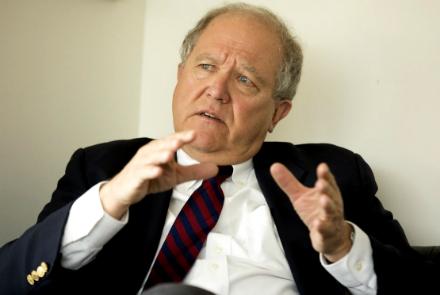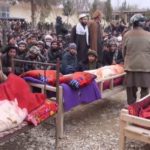John Sopko, Special Inspector General for Afghanistan Reconstruction (SIGAR), told US Congress on Tuesday that corruption remains the top “strategic threat” to the legitimacy and success of the Afghan government, and that Afghanistan is “nowhere near” able to fund its own government–“in particular, its military and police”—with its own resources.
The House Committee on Oversight and Reform scheduled this hearing in part to address the Washington Post’s December 2019 release of the “Afghanistan Papers,” which included thousands of pages of previously classified information from the war and reconstruction effort in Afghanistan since 2001. Many of the statements released have been characterized as evidence that the US government and military mislead the public about the challenges faced.
John Sopko’s team conducted many “lessons learned” interviews that formed a substantial portion of the documents in the “Afghanistan Papers.”
Along with John Sopko, US Secretary of State Michael Pompeo and US Secretary of Defense Mark Esper were invited to attend, but neither did so.
In the nearly two-hour session, John Sopko spoke of many issues related to US involvement in Afghanistan.
If large-scale withdrawals of US operational and oversight personnel occur, Sopko said, the stewardship of US taxpayer funds and achievement of reconstruction goals could suffer.
However, he said that even if the United States were to withdraw most of its remaining troops from Afghanistan, SIGAR would still work to provide the oversight of US taxpayer funds necessary to maintain the reconstruction program.
With or without a peace agreement, Afghanistan runs the risk of becoming a “narco-state” and has already been described as such by former officials from the US government and international organizations, said Sopko.
The US has sought over the past 17 years to build up the Afghan National Defense and Security Forces (ANDSF) so that they can protect the Afghan population and expel terrorist groups, said Sopko, reporting that “63 percent of all reconstruction funding, or $86.4 billion since 2002, has gone to build up the ANDSF.”
The US government was not properly prepared from the outset to help build an Afghan army and police force capable of protecting Afghanistan from internal and external threats and preventing the country from becoming a terrorist safe haven, he said.
Sopko believes that having personnel physically present in Afghanistan and able to move about the country is essential for effective oversight.
SIGAR found that despite significant US effort, estimated poverty, unemployment, and underemployment had not been reduced substantially, Sopko told the US Congress.
He also mentioned that with or without a peace agreement, Afghanistan runs the risk of becoming a “narco-state” and has already been described as such by former officials from the US government and international organizations.
Regarding gender issues and women’s rights, Sopko said: “Some experts believe that a precipitous withdrawal of US forces could lead to the deterioration of political and economic freedoms, however limited, currently enjoyed by women in Afghanistan.”
Sopko also referenced the ongoing peace talks in Doha, saying: “Recent US talks with the Taliban have raised questions about whether the fragile gains that have been made in women’s rights would be protected in the event of a US drawdown.”
Speaking of a reconciled country, Sopko said: “Ongoing insecurity, political uncertainty, poor social cohesion within a population traumatized by decades of war, and weak governance and rule of law will probably pose serious challenges to reintegration efforts.”
The Washington DC hearing comes while the US Special Representative for Afghanistan Reconciliation, Zalmay Khalilzad, and the US and NATO forces commander in Afghanistan, General Scott Miller, are in Brussels to discuss the Afghan peace process with NATO officials, according to Kay Bailey Hutchison, the United States Ambassador to NATO.
Ongoing insecurity, political uncertainty, poor social cohesion within a population traumatized by decades of war, and weak governance and rule of law will probably pose serious challenges to reintegration efforts, according to SIGAR.
He also said that the US has committed at least $1 billion for gender-related programs in Afghanistan and spent another $1 billion on programs for which the advancement of women was a component.
Sopko told Congress that SIGAR’s 2017 “lessons learned” surveys determined that police development was treated as a “secondary mission” for US government, despite the critical role that the ANP was intended to play in implementing rule of law and providing static, local-level security nationwide.
Also, with insufficient personnel, the ANDSF are less able to provide security to the Afghan population, are increasingly vulnerable to enemy attacks, and are at risk of incurring higher casualties, he said.













